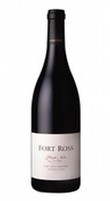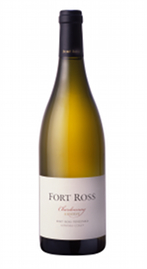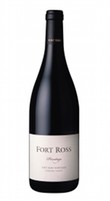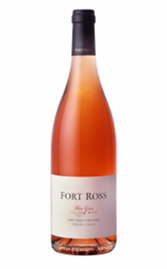 |
 Fort Ross Vineyard is primarily a Pinot Noir vineyard in an area that many believe will ultimately shine as brightly as Burgundy. Our Pinot Noir plantings include field selections of Calera, Pommard, and Swan as well as Dijon clones 115 and 777. The vines are planted on a variety of rootstocks, depending on soil types, grafting requirements and rootstock-scion compatibility. During harvest, grapes are handpicked in the cool early morning hours, hand sorted, destemmed, cold soaked for several days and fermented in simple open top fermenters and manually punched down. Shortly after pressing, the wines are aged in 100% French oak barrels, both new and used. Throughout destemming, fermentation and barreling, clones are kept separate to maintain their distinct flavor profiles and structural components. Blending trials determine how to combine the different clones into distinct wines that best reflect their component flavor profiles. The objective is always to create wines that reveal their fruit with structure, balance and finesse. The wine is unfined and with rare exceptions unfiltered. |
 |
 There are some areas of the vineyard where the soils were better suited to Chardonnay than Pinot Noir. We were lucky to be given two special field selections of Old Wente and Hyde chosen for their small berries and loose clusters. The first selection is graceful and fruity while the second is more structured and sleek. The overall crop in our Chardonnay blocks is small and the flavors intense. Picked in the cool morning hours, the grapes are hand sorted and then whole cluster pressed. Pressing is carefully monitored to limit pressed juice to only the first and finest juice and to avoid at all costs any of the undesirable flavors that often accompany harder pressed wine. After pressing, the wine from each field selection is separately barreled in selected combinations of new and used 100% French oak barrels to undergo barrel fermentation, including malolactic fermentation. Typically our Chardonnays are barreled for at least a year and often as long as sixteen months. Blending trials are done as the wines evolve. When the final blending relationships are decided, the wine is racked and bottled, without fining or filtration so that the wine maintains flavor and youthfulness over time. |
 |
 The Pinotage consists of two Fort Ross proprietary clones, MM1 and MM3, developed from bud wood imported from one of the most select Pinotage vineyards in South Africa. Pinotage was first developed in South Africa in 1925 by crossing the two vinifera varieties, Pinot Noir and Cinsault, known in South Africa as Hermitage, hence the name Pinotage. We were the first vineyard to import bud wood into California through the Foundation Plant Materials Service Program at UC Davis after the latter was assigned quarantine and certification duties in 1994. The Pinotage plant material was kept at UC Davis for 5 years and took 3 years to field graft onto 110R rootstock, on to which it is traditionally grafted. We were overjoyed when this long process finally culminated with our first harvest in 2001, which produced a gratifyingly unique and stunning wine, unlike any Pinotage produced in South Africa or New Zealand, where the varietal has also been planted. The Pinotage is vinified very similarly to the Pinot Noir. After hand-sorting, the grapes are destemmed, cold soaked for several days and fermented in simple open top fermenters. They are manually punched down. Shortly after pressing, the wines are barreled in 100% French oak consisting of a combination of new and used barrels. The Pinotage is typically barreled for between 12 and 18 months and racked just prior to bottling. It is unfined and unfiltered. |
 |
 Each year we try to make a Vin Gris or a Rosé by using the French saigne method of running off a small amount of free run juice from just crushed grapes after a short pre-fermentation maceration. The drained juice is then fermented without the tannic influence of the skins and seeds to produce this tantalizing and delightful summer wine. The Vin Gris is a crisp dry table wine, fermented without malolactic fermentation, in used oak barrels. The Rosé is fermented in oak barrels and put through Malolactic fermentation to produce a smooth, delightful, balanced light table wine. |